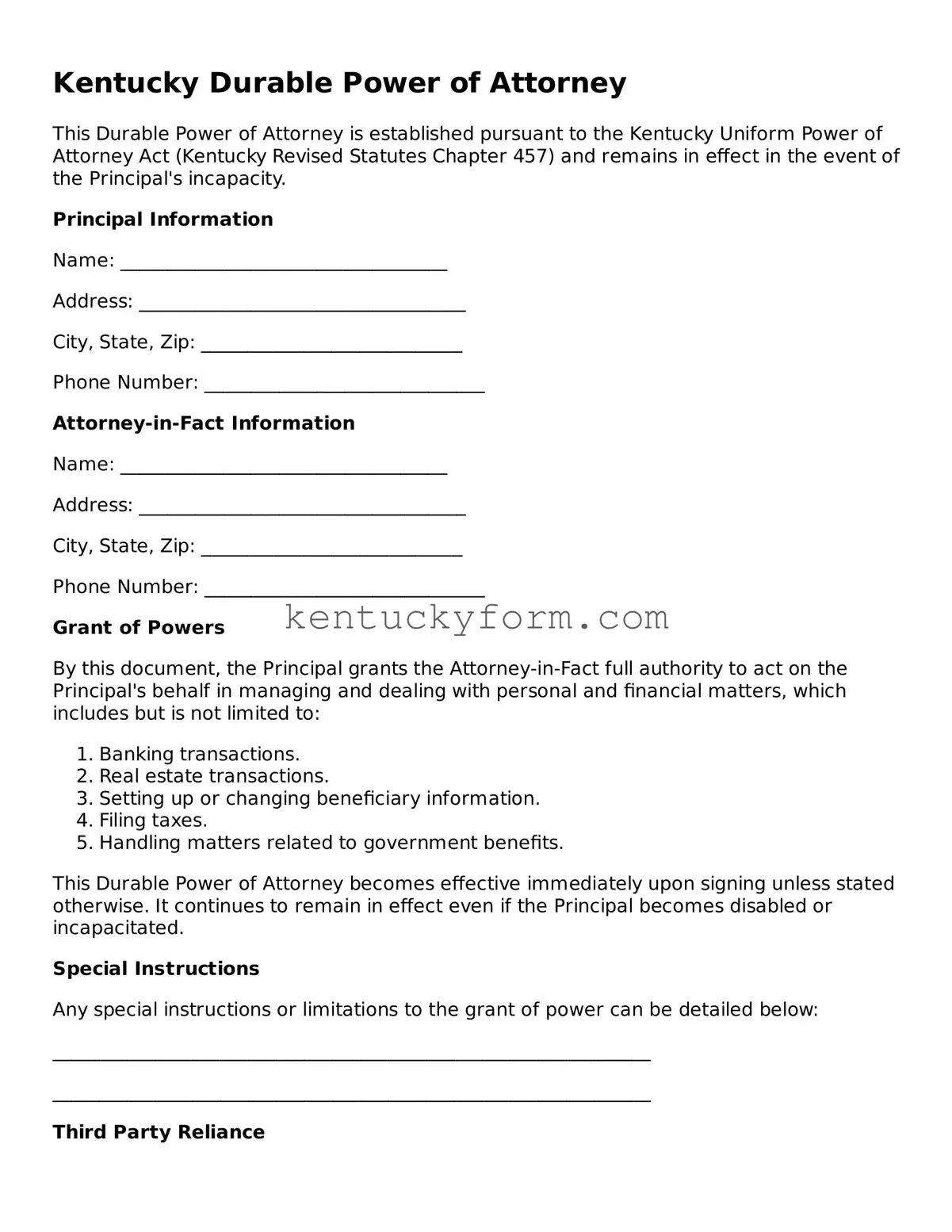Free Durable Power of Attorney Form for the State of Kentucky
The Kentucky Durable Power of Attorney form is a legal document that allows an individual to designate another person to make decisions on their behalf, particularly in matters concerning financial and healthcare decisions, should they become incapacitated. This form remains effective even if the person who fills it out becomes unable to communicate or make decisions for themselves. For those interested in securing their future decision-making processes, filling out this form is a crucial step.
Modify Document

Free Durable Power of Attorney Form for the State of Kentucky
Modify Document

Modify Document
or
Free Durable Power of Attorney File
One quick step left to finish
Edit, save, and download Durable Power of Attorney online with ease.